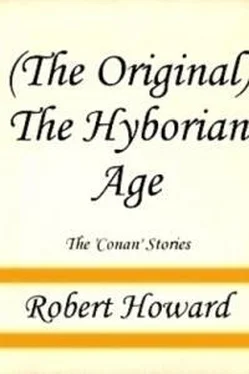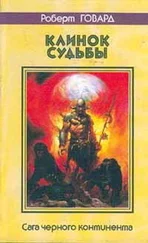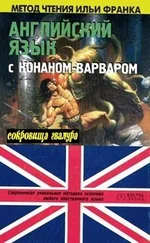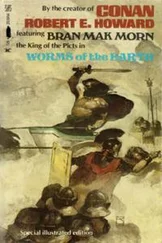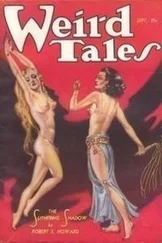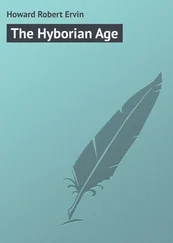But the newer weapons and mail were not enough to break the lines. For years the superior armaments and sturdy courage of the Bossonians held the invaders at bay, aided, when necessary, by imperial Aquilonian troops. During this time the Hyrkanians came and went, and Zamora was added to the empire.
Then treachery from an unexpected source broke the Bossonian lines. Before chronicling this treachery, it might be well to glance briefly at the Aquilonian empire. Always a rich kingdom, untold wealth had been rolled in by conquest, and sumptuous splendor had taken the place of simple and hardy living. But degeneracy had not yet sapped the kings and the people; though clad in silks and cloth–of–gold, they were still a vital, virile race. But arrogance was supplanting their former simplicity. They treated less powerful people with growing contempt, levying more and more tributes on the conquered. Argos, Zingara, Ophir, Zamora and the Shemite countries were treated as subjugated provinces, which was especially galling to the proud Zingarans, who often revolted, despite savage retaliations.
Koth was practically tributary, being under Aquilonia's 'protection' against the Hyrkanians. But Nemedia the western empire had never been able to subdue, although the latter's triumphs were of the defensive sort, and were generally attained with the aid of Hyperborean armies. During this period Aquilonia's only defeats were: her failure to annex Nemedia; the rout of an army sent into Cimmeria; and the almost complete destruction of an army by the Æsir. Just as the Hyrkanians found themselves unable to withstand the heavy cavalry charges of the Aquilonians, so the latter, invading the snow–countries, were overwhelmed by the ferocious hand–to–hand fighting of the Nordics. But Aquilonia's conquests were pushed to the Nilus, where a Stygian army was defeated with great slaughter, and the king of Stygia sent tribute—once at least—to divert invasion of his kingdom. Brythunia was reduced in a series of whirlwind wars, and preparations were made to subjugate the ancient rival at last—Nemedia.
With their glittering hosts greatly increased by mercenaries, the Aquilonians moved against their old–time foe, and it seemed as if the thrust were destined to crush the last shadow of Nemedian independence. But contentions arose between the Aquilonians and their Bossonian auxiliaries.
As the inevitable result of imperial expansion, the Aquilonians had become haughty and intolerant. They derided the ruder, unsophisticated Bossonians, and hard feeling grew between them—the Aquilonians despising the Bossonians and the latter resenting the attitude of their masters—who now boldly called themselves such, and treated the Bossonians like conquered subjects, taxing them exorbitantly, and conscripting them for their wars of territorial expansion—wars the profits of which the Bossonians shared little. Scarcely enough men were left in the marches to guard the frontier, and hearing of Pictish outrages in their homelands, whole Bossonian regiments quit the Nemedian campaign and marched to the western frontier, where they defeated the dark–skinned invaders in a great battle.
This desertion, however, was the direct cause of Aquilonia's defeat by the desperate Nemedians, and brought down on the Bossonians the cruel wrath of the imperialists—intolerant and short–sighted as imperialists invariably are. Aquilonian regiments were secretly brought to the borders of the marches, the Bossonian chiefs were invited to attend a great conclave, and, in the guise of an expedition against the Picts, bands of savage Shemitish soldiers were quartered among the unsuspecting villagers. The unarmed chiefs were massacred, the Shemites turned on their stunned hosts with torch and sword, and the armored imperial hosts were hurled ruthlessly on the unsuspecting people. From north to south the marches were ravaged and the Aquilonian armies marched back from the borders, leaving a ruined and devastated land behind them.
And then the Pictish invasion burst in full power along those borders. It was no mere raid, but the concerted rush of a whole nation, led by chiefs who had served in Aquilonian armies, and planned and directed by Gorm—an old man now, but with the fire of his fierce ambition undimmed. This time there were no strong walled villages in their path, manned by sturdy archers, to hold back the rush until the imperial troops could be brought up. The remnants of the Bossonians were swept out of existence, and the blood–mad barbarians swarmed into Aquilonia, looting and burning, before the legions, warring again with the Nemedians, could be marched into the west. Zingara seized this opportunity to throw off the yoke, which example was followed by Corinthia and the Shemites. Whole regiments of mercenaries and vassals mutinied and marched back to their own countries, looting and burning as they went. The Picts surged irresistibly eastward, and host after host was trampled beneath their feet. Without their Bossonian archers the Aquilonians found themselves unable to cope with the terrible arrow–fire of the barbarians. From all parts of the empire legions were recalled to resist the onrush, while from the wilderness horde after horde swarmed forth, in apparently inexhaustible supply. And in the midst of this chaos, the Cimmerians swept down from their hills, completing the ruin. They looted cities, devastated the country, and retired into the hills with their plunder, but the Picts occupied the land they had over–run. And the Aquilonian empire went down in fire and blood.
Then again the Hyrkanians rode from the blue east. The withdrawal of the imperial legions from Zamora was their incitement. Zamora fell easy prey to their thrusts, and the Hyrkanian king established his capital in the largest city of the country. This invasion was from the ancient Hyrkanian kingdom of Turan, on the shores of the inland sea, but another, more savage Hyrkanian thrust came from the north. Hosts of steel–clad riders galloped around the northern extremity of the inland sea, traversed the icy deserts, entered the steppes, driving the aborigines before them, and launched themselves against the western kingdoms. These newcomers were not at first allies with the Turanians, but skirmished with them as with the Hyborians; new drifts of eastern warriors bickered and fought, until all were united under a great chief, who came riding from the very shores of the eastern ocean. With no Aquilonian armies to oppose them, they were invincible. They swept over and subjugated Brythunia, and devastated southern Hyperborea, and Corinthia. They swept into the Cimmerian hills, driving the black–haired barbarians before them, but among the hills, where cavalry was less effectual, the Cimmerians turned on them, and only a disorderly retreat, at the end of a whole day of bloody fighting, saved the Hyrkanian hosts from complete annihilation.
While these events had been transpiring, the kingdoms of Shem had conquered their ancient master, Koth, and had been defeated in an attempted invasion of Stygia. But scarcely had they completed their degradation of Koth, when they were over–run by the Hyrkanians, and found themselves subjugated by sterner masters than the Hyborians had ever been. Meanwhile the Picts had made themselves complete masters of Aquilonia, practically blotting out the inhabitants. They had broken over the borders of Zingara, and thousands of Zingarans, fleeing the slaughter into Argos, threw themselves on the mercy of the westward–sweeping Hyrkanians, who settled them in Zamora as subjects. Behind them as they fled, Argos was enveloped in the flame and slaughter of Pictish conquest, and the slayers swept into Ophir and clashed with the westward–riding Hyrkanians. The latter, after their conquest of Shem, had overthrown a Stygian army at the Nilus and over–run the country as far south as the black kingdom of Amazon, of whose people they brought back thousands as captives, settling them among the Shemites. Possibly they would have completed their conquests in Stygia, adding it to their widening empire, but for the fierce thrusts of the Picts against their western conquests.
Читать дальше
